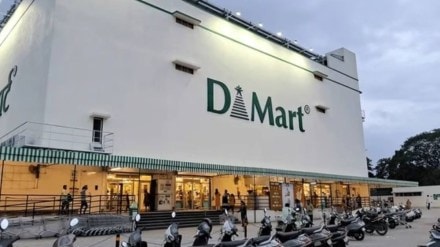Grocery retailer Avenue Supermarts, best known for its DMart chain of stores, is streamlining its online operations by exiting smaller cities and sharpening its focus on large urban markets. The strategic shift comes amid intensifying competition from quick-commerce platforms, pushing DMart Ready — the company’s online platform — to concentrate resources where demand for convenience is highest.
In the September quarter, DMart Ready exited five cities — Amritsar, Belagavi, Bhilai, Chandigarh and Ghaziabad — reducing its presence from 24 to 19 cities. “We added 10 new fulfilment centers in our existing markets and continued to invest and deepen our presence in the large metro cities. We are now present across 19 cities in India,” said Vikram Dasu, whole-time director and CEO of Avenue E-commerce, a subsidiary of Avenue Supermarts.
This follows the company’s withdrawal from Anand in Gujarat, in the June quarter. In FY25, DMart Ready operated in 25 cities across India. By the first half of FY26, it had exited six locations, and more exits could follow as the company adopts a calibrated approach to its online business. The platform has been under pressure from fast-growing competitors such as Blinkit, Zepto, and Swiggy Instamart.
“We added 10 new fulfilment centers in our existing markets and continued to invest and deepen our presence in the large metro cities. We are now present across 19 cities in India,” Dasu said. Shares of Avenue Supermarts fell 2.72% on Monday to close at ₹4,202.15 apiece as investors reacted negatively to the company’s latest quarterly performance. On Saturday, the retailer had reported a 4% year-on-year rise in net profit to ₹685 crore, with revenue up 15.5% year-on-year at ₹16,676 crore. Same-store sales growth came in at 6.8%, compared to 5.5% a year earlier, but was down 30 basis points sequentially (7.1% in the June quarter). One basis point is one-hundredth of a percentage point.
JP Morgan says in a report on Monday that the focus on large cities and metros for DMart Ready bodes well, since acceptance of quick commerce is highest in these markets. While DMart offers affordable prices online, much like it does in its stores, deliveries are staggered, JP Morgan says. Most of its quick commerce rivals are faster in comparison, an area that DMart Ready may need to address to improve performance, it adds.
A look at the imputed subsidiaries of Avenue Supermarts, analysts at Bank of America Securities say, reveals a moderation in topline growth in Q2FY26. Avenue Supermarts has also been looking to cut its losses in its e-commerce subsidiary, it adds, by exiting out of small cities.
“Growth of imputed subsidiaries, which includes the DMart Ready business, has moderated to 16% year-on-year in Q2FY26, from 20-30% seen in previous quarters. Losses continue to remain in a similar ballpark,” Bank of America Securities said.
Losses (at the Ebitda level) in Avenue Supermarts’ imputed subsidiaries increased in the September quarter to Rs 16.3 crore from Rs 11.3 crore reported a year ago. In the last three quarters, losses have hovered in the region of Rs 14-26 crore, the brokerage said.
Losses at the Ebitda level in Avenue Supermarts’ imputed subsidiaries widened to ₹16.3 crore in the September quarter, up from ₹11.3 crore a year earlier. Over the last three quarters, losses have hovered between ₹14–26 crore, according to Bank of America Securities.
